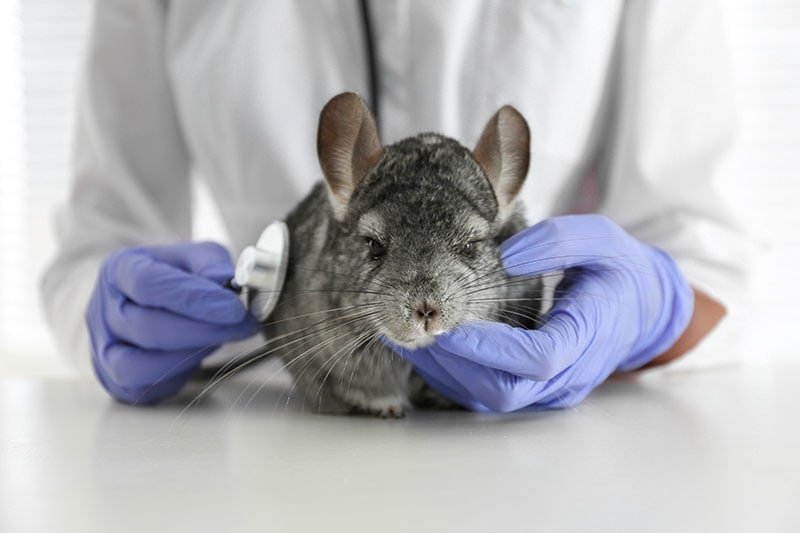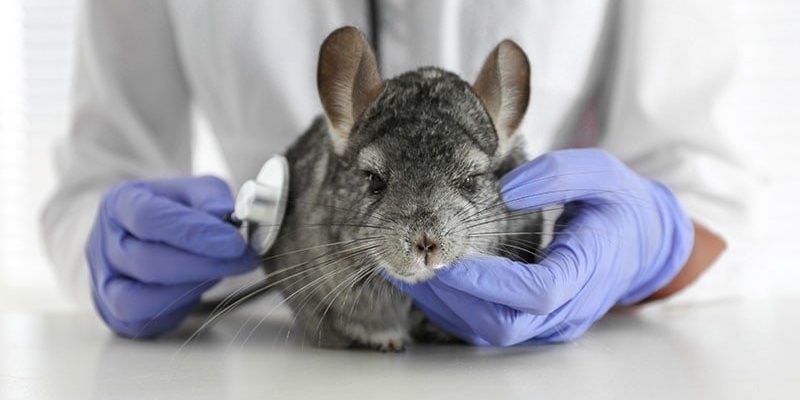
Imagine your chinchilla as a delicate little cloud. You want to keep that cloud happy and healthy, right? Knowing what can affect their health helps you be a better pet parent. Let’s dive into some common health problems chinchillas face and how to handle them calmly and confidently.
Dental Issues in Chinchillas
One of the most common health problems chinchillas face is dental issues. Their teeth constantly grow, which is why they need to chew on things like hay and wood to keep them in check. If they don’t get enough crunchy snacks, their teeth can become overgrown. This can lead to pain, difficulty eating, or even abscesses.
You might notice signs like drooling, difficulty picking up food, or a change in appetite. If that fluffy bundle of joy starts looking a little less enthusiastic about treats, it might be time for a check-up. You can help prevent dental problems by providing endless hay and safe chew toys.
If you suspect dental issues, your vet will likely do a thorough oral examination and might recommend trimming the teeth or adjusting their diet. Remember, timely intervention is key!
Respiratory Problems
Chinchillas are sensitive little creatures, especially when it comes to their respiratory system. They can develop problems from exposure to drafts, dampness, or dusty environments. If you notice your chinchilla sneezing, coughing, or having difficulty breathing, it’s a good idea to pay attention.
Symptoms can also include nasal discharge and lethargy. These signs could indicate something as simple as a cold or something more serious, like pneumonia. Keep in mind that chinchillas are particularly vulnerable to extreme temperatures, so maintaining a stable, dry environment is crucial for their health.
If you’re concerned about respiratory problems, schedule a visit to your vet. They can assess the situation and provide treatment options that protect your little friend from severe issues down the line.
Digestive Issues: Hypermotility and Bloat
Digestive problems can be a real worry for chinchilla owners. Their delicate tummies can become upset due to sudden diet changes, eating inappropriate foods, or stress. One of the most serious digestive issues is bloat, which can arise from gas buildup in the digestive tract.
If your chinchilla shows signs of not eating, lethargy, or a distended abdomen, it’s time to act. These symptoms can indicate hypermotility, which means their digestive system is trying to work overtime. Stress from loud noises or changes in their routine can also lead to an upset stomach.
The best way to prevent this is by keeping their diet consistent and avoiding sudden changes. If you suspect a digestive issue, don’t wait. Reach out to your vet for an assessment because timely treatment can make all the difference.
Skin Problems and Fur Issues
Chinchillas have gorgeous fur, but it can be prone to various issues, including fur chewing and skin irritation. Stress, boredom, or lack of grooming can lead to fur chewing, which can expose the skin and create hotspots.
Look for signs like patches of missing fur or irritated skin. These can often result from a lack of environmental enrichment or even an underlying health issue. It’s essential to keep your chinchilla’s habitat stimulating, ensuring they have plenty of toys and activities to keep them engaged.
If you notice any changes in their fur or skin condition, don’t hesitate to consult a vet. They can help identify the root cause and offer treatment options to keep your pet’s coat shiny and healthy!
Monitoring Behavior for Signs of Stress or Anxiety
Chinchillas are sensitive animals and can experience stress or anxiety due to various factors. Changes in routine, loud noises, or even the introduction of new pets can be overwhelming for them. Some signs of stress include excessive hiding, changes in eating habits, or unusual aggression.
Creating a calm environment can help your chinchilla maintain a healthy emotional state. Consider providing safe, cozy hiding spots and minimizing loud noises.
If you’re seeing persistent behavioral changes, a vet visit may be in order. Your vet can offer advice on how to help your chinchilla cope with stress and anxiety effectively.
When to Visit the Vet
Now that you’re aware of some common chinchilla health problems, you might wonder when it’s appropriate to consult a vet. Generally, if you notice any unusual behavior, changes in eating or drinking habits, or visible distress, it’s best to err on the side of caution.
Here’s a quick list of signs that indicate a trip to the vet is necessary:
- Difficulty eating or chewing
- Excessive sneezing or coughing
- Abdominal swelling or signs of pain
- Changes in fur quality or patches of alopecia
- Persistent lethargy or hiding behavior
Taking your chinchilla to the vet promptly can prevent minor issues from becoming severe health concerns. Regular check-ups are also a great way to catch potential problems early, so don’t skip those appointments!
Final Thoughts on Chinchilla Health
Owning a chinchilla can be incredibly rewarding, but it’s essential to stay informed about their health. Keeping an eye on their behavior, providing a balanced diet, and creating a supportive environment can help keep your chinchilla happy and healthy.
You don’t have to be an expert, but being proactive about their health will always pay off. When in doubt, don’t hesitate to reach out to your vet. They’re there to help, and your chinchilla will thank you for it!
With a little love and care, your chinchilla can thrive and bring joy to your life for many years to come.

